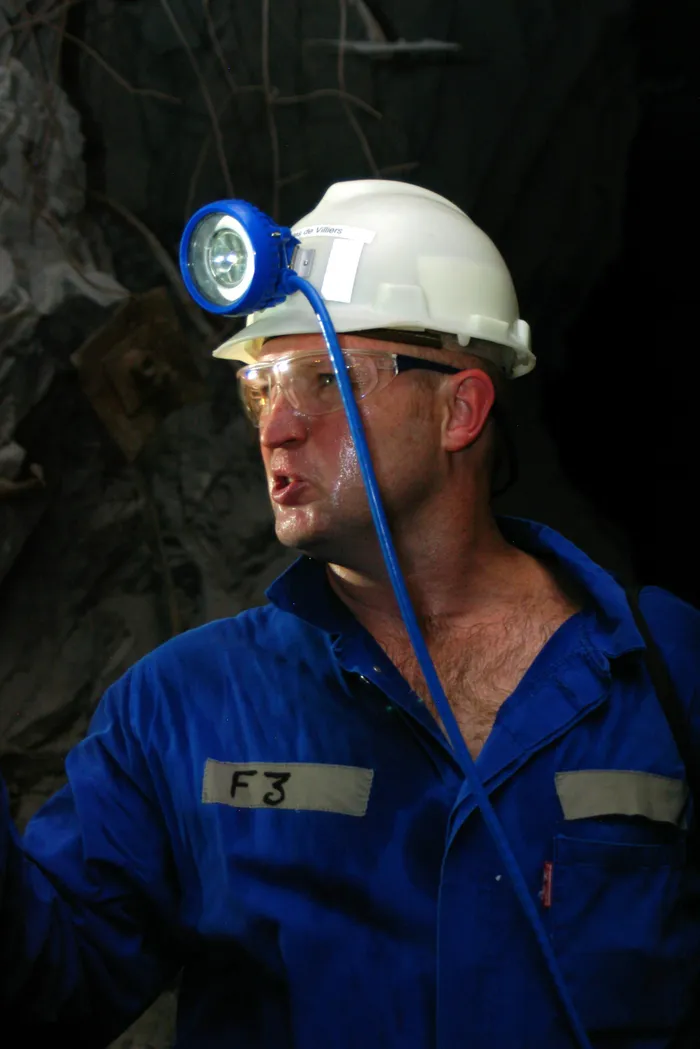
A miner works several km underground in a gold mine on Gauteng's far West Rand.
Image: Nicola Mawson | IOL
The Minerals Council South Africa has highlighted the need for legislation that supports investment, growth, and job creation in the country’s mining sector, following its submission on the Mineral Resources Development Bill by the August 13 deadline.
Speaking at a media briefing, the various representatives of the council, which represents 70 mining companies responsible for more than 90% of South Africa’s mineral sales, said the proposed bill should provide certainty and predictability for investors.
“The regulatory environment must be conducive to encouraging investment in exploration, mine development and sustain existing mining operations so that the industry can grow, create jobs and generate the wealth it is capable of delivering for the benefit of all South Africans,” said Mzila Mthenjane, CEO of the Minerals Council.
The Mining Affected Communities United in Action has expressed concern over the Bill betraying the transformation objectives fought for during the Liberation Struggle. The organisation said that, instead of advancing democratic participation and justice, the amendments entrench the power of mining companies and marginalise the voices of communities.
Clear definitions, consistent administration, and coordinated engagement between government departments were flagged as key to fostering confidence in the sector by the council.
Concerns were raised over declining exploration expenditure, pointing to South Africa’s low ranking in investment attractiveness, as measured by the Fraser Institute. It stressed the need for a legislative framework that encourages global competitiveness and attracts investment, which in turn could boost job creation and economic growth.
To address this, it has provided specific recommendations that includes clarifying the empowerment regime, publishing incentives for infrastructure development, streamlining monitoring and environmental obligations, and addressing illegal mining while ensuring compliance with health and safety standards.
The Minerals Council said it would continue extensive engagement with the Department of Mineral Resources to refine the bill, noting that the process would involve multiple stakeholders and take time. The council emphasised that negotiations would remain internal, with a focus on constructive engagement rather than public disputes.
Key elements of the Bill that will be the focus of the Minerals Council engagement with the department include beneficiation, empowerment, tailings, and mine closure provisions, which rely heavily on unpublished regulations and, in their current form are potentially disruptive to mining operations and potential investment.
The Council also called for the publication of the socio-economic impact assessment conducted for the bill, describing it as critical for transparency and informed public engagement.
While acknowledging past challenges in legislative processes, the council said the current political climate presents an opportunity to advance policies that support investment and growth. It stressed that a collaborative approach between industry and government would be key to achieving a favourable outcome.
The mining sector remains a significant contributor to gross domestic product (GDP) and employment, despite recent declines. A supportive legislative framework can unlock further exploration, development, and job creation, it indicated.
In 2024, the mining sector contributed 6% to South Africa's total nominal GDP, according to African Business. This translates to approximately R100 billion in national revenue, and employing almost half-a-million people.
The Minerals Council will continue submitting detailed inputs and engaging with stakeholders to ensure the final bill strengthens the sector while promoting transformation and economic growth.
IOL